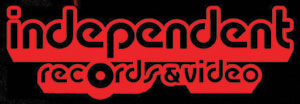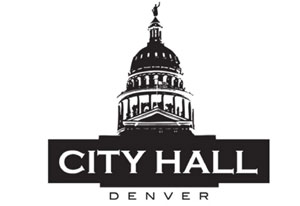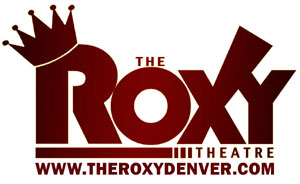Manager’s Corner
by Chris Daniels
I’ve managed my own band since the 1980s, and despite the amazing change in technology, success in the music business is built around four tried and true elements: great music, really hard work and timing (often mistaken for luck). The other key element is getting the help you need to make that luck happen. These days, that help is everywhere. The book I wrote for my UCD class on artist management is called “DIY: You’re Not in it Alone” and that is exactly what you need to understand.
The new Leisure Suite Larry doesn’t look or sound anything like the cigar smoking, fast-talking, gold chain wearing, rip off con artist of the 1990s. In the not so distant past, college courses teaching artist management warned young students about the weird guys (usually men) who prayed upon young artists – signing them to unscrupulous deals, or worse, signing away a songwriter’s publishing to some second-rate company that gave that songwriter little, or nothing, for their music. These cons would line up a new talent with a hack producer, who watered down all the energy and “youth” in the music, all the while trying to get into the pants of the pretty looking wanna-be stars in the band.
While there are still some of these mythic conmen out there, the majority of the rip offs are a lot closer to home, and a whole lot more dangerous in the DIY age when artists are willing to do ANYTHING just to get their name “out there.”
The new Leisure Suite Larry (or Sandy), tend to come in the form of independent record producers or, less than top of the line studios, or self-styled “music promoters” who don’t actually understand the industry, and whose contracts can totally screw up your career. RULE ONE – ALWAYS TALK TO A GOOD ENTERTAINMENT ATTORNEY BEFORE SIGNING ANYTHING. I can’t tell you how many bogus contracts my students and friends have asked me to review in the past three years, and with the exception of one that was legitimate, all the others contained serious problems.
I refer all who ask me to good entertainment lawyers, but here are some of the most common problems I saw: (a) money up front. While it is totally legitimate for a recording studio that does not know you, or your reputation, to ask for a deposit of 50% up front (for recording time and engineer fees), what I have seen is more insidious. One contract was for a producer in Atlanta who offered to make a young songwriter a star if she would (A) pay for all the recording up front (at a supposed low rate), (B) even though she was paying the producer fee, engineer fee, and recording costs, the producer got the choice of songs, and could dictate the musicians amount of time, and the actual days and times, the young artist got to record. (C) Any and all recordings were the sole property of the producer and the recording studio. (D) There was no promised marketing or “shopping” plan for the recordings, and no completion date set. And last, but not least, the studio wanted co-ownership of the publishing, as well as ownership of the master for the length of the copyright. The studio had no publishing company or other “song plugging” capabilities listed or offered. I’ll address each of these points in the next paragraph, but what makes this “supposed deal” so totally shocking, is that it is not the only one like it I have seen, and the talented young artist was considering signing it because she felt that there was interest and excitement about her music conveyed by the studio and producer.
Now, I will grant you that these are scary times for talented young people, and the interest and excitement about your work from any seemingly valid outside source can feel reaffirming, and some of these deals are legit good deals, but the devil really is in the details. I mean a good used car salesman can make you feel great about that 78 Dodge Polaris that has so much sawdust in the transmission you can smell wood burning when you pull off the lot. So you have to be careful. Even contracts for shows like The Voice and Star Search are notoriously draconian: I have seen some that were 60 pages long, and tied up the winner for the next five years with very onerous clauses on a songwriters royalties and copyright ownership.
So let’s just walk through this beauty from Atlanta. (A) In this contract, the rate was listed as 50% of their “card rate” but two problems; they didn’t publish the card rate, and there were no comparisons to other similar studios. (B) Why in the hell would you pay a studio and producer to help you record your songs, and then hand the control over to the studio and producer as to what songs you record, when, and with what musicians you record them, and give creative control to somebody YOU are paying. While it is common practice with a REAL record deal, with a major company like Universal to do this, this is NOT a real record deal! YOU are paying them–the studio and producer–they are not “investing” in you, there is no “risk” that they are taking by betting on you as a new artist. They are not managers or labels or attorneys. (B) You PAID for the recordings, why in hell should THEY own them? (D) There are a ton of really great producers right here in Colorado, from Ryan Tedder to John McVey, to three-time Grammy winner Tom Wasinger, and all of them will tell you up front that they have some connections in the business side of things, and will do what they can to help find a home for your record. But none of them are managers or entertainment attorneys who make part or all of their living “shopping” acts to labels, and they will be the first to admit it. Shopping your record for a deal, or even just good international distribution, is the job of a manager or attorney.
Last, but not least, publishing. A real publishing company has a number of functions, including registration of your songs with your PRO and preexisting relationships with music supervisors for TV, films, and commercials, that justify shared ownership deals or administrative deals that a good songwriter should feel confident signing. But a recording studio and a producer affiliated with that studio, no matter how talented, are not in the publishing business, they are in the recording business.
In a world where a good ‘home studio’ can turn out a great recording, and a commercial mid level, or even professional, studio is in a challenging time to keep their doors open. Artists and songwriters should be very wary of any contracts that “overreach” and ask for participation in revenue streams that are inappropriate; or worse, like the contract from Atlanta above, which are just whacked. Don Passman, who wrote one of the best intro to music business books called these kinds of contracts “yutzo” contracts, and I think that’s about right: nuts with a bit of hillbilly tossed in.
Category: Shop Talk


















